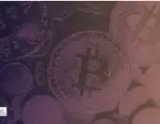The Philippines commits to implementing the Crypto-Asset Reporting Framework (CARF) by 2028, aiming to combat cross-border tax evasion and financial crime through global collaboration and digital transparency.
Philippines Commits to Crypto-Asset Reporting Framework to Combat Tax Evasion
The Department of Finance (DOF) has announced that the Philippines will adopt the Crypto-Asset Reporting Framework (CARF) by 2028, reinforcing its commitment to curbing cross-border tax evasion and illicit financial flows linked to digital currencies.
In a statement released on Wednesday, the DOF confirmed that this landmark pledge was formalised during the 8th Asia Initiative Meeting, which took place from May 26 to 29, 2025, in Malé, Maldives. Representing the Philippines, DOF Revenue Operations Group Undersecretary Charlito Martin Mendoza articulated the country’s intention to participate in this multilateral agreement.
Aligning with Global Standards on Crypto Regulation
CARF is a global initiative that sets a standardized approach to the automatic exchange of information on crypto-asset transactions among tax authorities. The framework aims to enhance transparency in the rapidly expanding world of digital finance and ensure that taxpayers using crypto-assets remain compliant.
The Philippines now joins 67 other jurisdictions that have committed to implementing CARF by either 2027 or 2028, marking a significant step towards harmonising international tax regulations in the digital age.
Addressing Risks in the Digital Economy
Finance Secretary Ralph Recto underscored the importance of the framework, calling it a “timely commitment” given the rise of digital currencies. “We need faster and stronger systems for collaboration if we are to beat tax evasion and illicit transactions,” said Recto.
He added, “The government must ensure that crypto-asset users are paying their fair share of taxes and that no illicit financial activity goes unpunished.”
As the popularity of cryptocurrencies continues to grow, so too do concerns about their potential misuse for avoiding taxes and moving illicit funds across borders. With this latest move, the Philippines aims to close these gaps by embracing a unified, international system of oversight.
Global Consensus on Crypto Transparency
The CARF, spearheaded by the Organisation for Economic Co-operation and Development (OECD), is gaining traction worldwide as countries seek to bring clarity and enforcement to the shadowy corners of the crypto market. The Philippines’ alignment with this initiative highlights the country’s proactive stance on digital governance and financial accountability.
By joining this international network, the Philippines enhances its capacity to track crypto-asset transactions, enforce tax laws, and collaborate with global partners in detecting financial crimes.
The DOF’s announcement signals a new chapter in the country’s digital financial regulation, aimed at ensuring that technological innovation does not outpace the systems needed to govern it.

